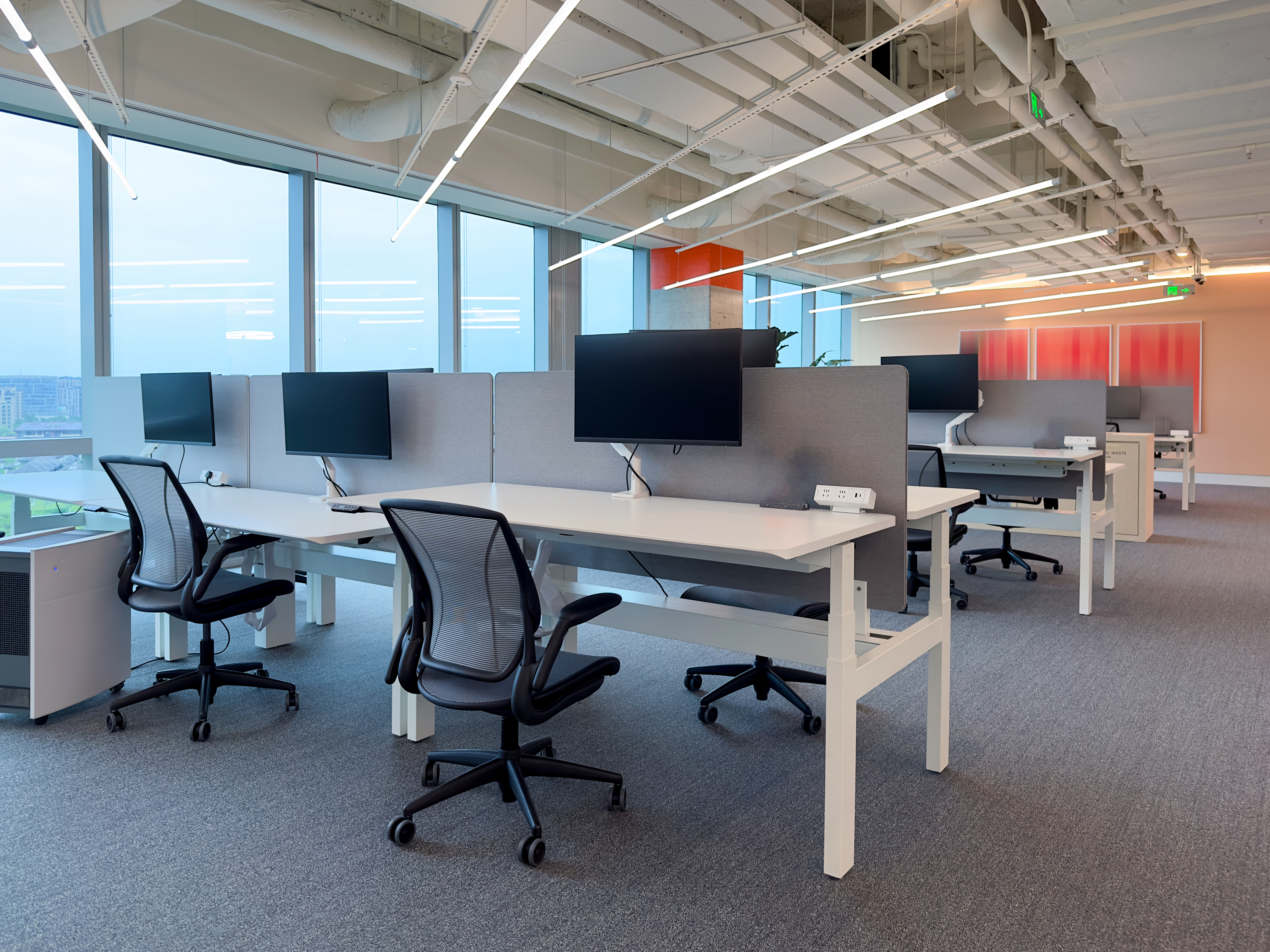The Highlights
- Clean workplaces significantly contribute to employee health by reducing the spread of pathogens, as emphasized by CDC guidelines.
- Maintaining cleanliness is essential for ensuring safety in the workplace. Effective housekeeping prevents accidents such as slips, trips, and falls by keeping spaces clear of hazards and ensuring spills are promptly cleaned.
- A clean and organized workplace enhances employee focus and efficiency, leading to increased productivity.
Crafting a workplace that epitomizes health, safety, and productivity demands meticulous attention and unwavering commitment. In the pursuit of an exemplary work environment, the importance of a clean office emerges as a pivotal yet often undervalued element. Far beyond mere aesthetic enhancement, a meticulously maintained workspace is instrumental in nurturing employee well-being, mitigating illness transmission, and elevating overall productivity.
Health: The Foundational Pillar of ROI in Workplace Cleanliness
The interplay between workplace cleanliness and employee health is substantiated by compelling evidence. Adherence to thorough cleaning protocols, as recommended by the CDC for disinfecting high-touch surfaces, is crucial for minimizing the proliferation of illness-causing pathogens. A disciplined approach to cleanliness not only diminishes the presence of these germs but significantly reduces the frequency of sick days and related healthcare costs resulting from workplace-acquired infections.
Startling research from the University of Arizona reveals that the importance of a clean office cannot be overemphasized. The average office desk can host up to 400 times more bacteria than a typical toilet seat, highlighting the critical role of cleanliness in curbing absenteeism. Annually, millions of workdays lost to illness and injury could be significantly decreased through rigorous cleaning practices. Investing in expert cleaning services offers tangible financial benefits by lowering the instances of workday interruptions and healthcare expenses.
Safety: A Clean and Safe Work Environment as the Bedrock of Accident Prevention and Employee Well-being
The influence of cleanliness on workplace safety is direct and profound. Spaces marred by disorder and neglect are hotspots for accidents, ranging from minor slips to more grave incidents. Regular maintenance and cleaning protocols ensure that pathways remain unobstructed, spills are swiftly managed, and potential dangers are eradicated—thus promoting a safer working atmosphere. Annually, inadequate housekeeping practices contribute to over 400,000 injuries due to slips and falls, highlighting the necessity of pristine conditions for preventing such mishaps. Beyond the immediate risks, clutter also magnifies fire hazards and can impede emergency evacuations, underscoring the importance of cleanliness in safeguarding against occupational diseases and enhancing air quality.
Productivity: How a Clean Office Can Boost Productivity
Perhaps the most tangible benefit of workplace cleanliness is its positive impact on productivity. An orderly and clean workspace reduces distractions, enabling employees to concentrate more fully and work with greater efficiency. A study by the Staples Corporation unveiled a strong preference among employees for a clean working environment, correlating it with enhanced productivity and superior work quality. Moreover, employees who view their workspace as clean and well-maintained are more likely to experience higher morale and job satisfaction, crucial factors for sustained performance and retention.
The hidden ROI of cleanliness in the workplace is comprehensive. It bolsters health, safety, and productivity and forges a more robust and resilient organization. By placing cleanliness at the forefront of operational priorities, businesses not only foster the benefits of a clean work environment but also invest in their most crucial asset—their workforce. The dividends of maintaining a clean workplace are unequivocal, translating into a healthier, safer, and more efficient workforce, thereby underlining cleanliness as an indispensable facet of successful business strategy.



